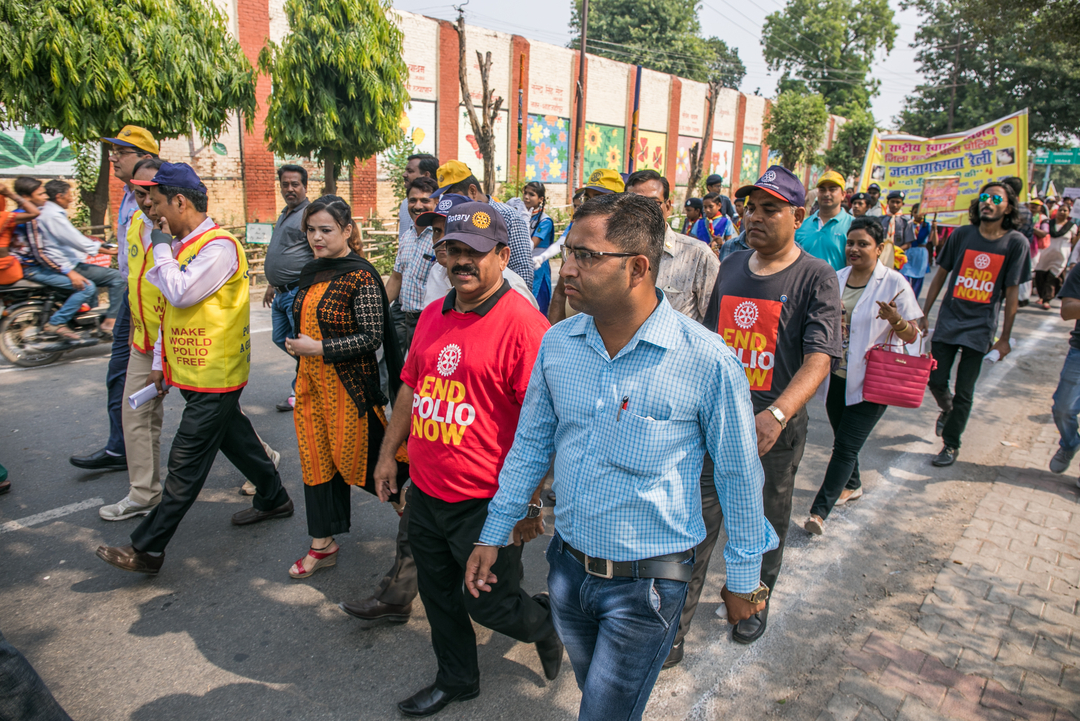A Commitment to the Children of the World
Mar. 26, 2024
The story of Rotary’s role in making India polio-free should make every Indian Rotary member feel proud. India was once the world’s largest polio-endemic country and now we celebrate 10 years since the World Health Organization (WHO) certified the South-East Asia Region, which includes India, free from wild poliovirus.
The polio eradication campaign in India has been the biggest and one of the best public health programs in the country. After the launch of National Immunization Days in 1995, the number of polio cases went from 500 cases a day to zero – the last case being that of Rukhsar Khatoon in West Bengal on 13 January 2011. Each NID had over 700,000 vaccination booths with 2,500,000 vaccinators in 1,170,000 vaccination teams reaching out to immunize about 170 million children. Since a region must remain free from any cases of polio for three years before being certified polio free by WHO, India had to wait to for the region to be certified until 27 March 2014.
The campaign in India was spearheaded by Rotary’s India National PolioPlus Committee (INPPC). It was challenged by low levels of routine immunization, the very low socio-economic status of the population in affected areas, and population movement in densely populated regions with high rates of malnutrition and unhygienic living conditions favoring survival of the poliovirus.
Keeping this in mind, the INPPC garnered political, bureaucratic, and religious support through a multi-pronged approach. Their efforts included training district governors and district PolioPlus subcommittee chairs followed by workshops in each district to train Rotary members. Members would then hold awareness campaigns using banners, posters, handouts, rallies, and public events. They also included involvement of celebrities and aided government and municipal staff that were engaged in immunization. Rotary members also made home visits and participated in National and Sub National Immunization Days (S/NIDs). Mop-up rounds that were organized whenever and wherever needed.

In 2004, for the first time in the history of independent India, Muslim leaders from three different sects of Islam were brought together by Rotary to issue a joint appeal supporting polio eradication. In 2007, the INPPC formed a Rotary Muslim Ulema Committee in the state of Uttar Pradesh comprised of senior Muslim scholars and religious leaders to address the issue of resistance to immunization. Alongside vaccinations, Rotary has also been engaged in organizing and funding polio corrective surgeries and rehabilitation of those affected.
It is rightly said that polio anywhere in the world is a threat everywhere in the world. Though the polio eradication campaign has taken longer than initially estimated or targeted, Rotary members have risen to the challenges with their efforts. Now only two countries – Afghanistan and Pakistan – remain polio-endemic, and we cannot afford to be complacent. Our current goals are:
1) Eradicating poliovirus
2) Protecting populations from re-emergence
3) Promptly detecting occurrence and responding rapidly to prevent transmission
We must fulfill our commitment to the children of the world. Rotary members who have not been able to participate in an immunization campaign still have a chance to be a part of the success story by contributing generously. Let’s do it! Together, we end polio!
